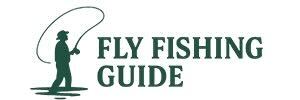Patagonia on the Fly: A Day Chasing Trout in Bariloche
Where the Andes meet cold, clear rivers—and trout test your best cast.
Before the wind wakes, the Limay lies quiet as a cat, muscles coiled, watching. Mist lifts off the river like breath in the cold, and the first cast cuts the dawn—a silver ribbon arcing toward a seam that looks too perfect to be real. The line settles, mends, and drifts. Beneath volcanic cliffs and a sky just starting to blue, Patagonia starts talking: the river nudges your fly toward the current’s edge, then tugs hard, impatience flashing into your rod. A trout—wild, heavy, and buttered with gold—turns downstream. The day has begun.
Trail Wisdom
Work With the Wind
Patagonian afternoons can howl—use low, sidearm casts and shorten your leader to punch through gusts.
Polarized Lenses Are Mandatory
They cut glare so you can read seams, spot fish, and protect your eyes from errant hooks.
Wade Like a Heron
Shuffle your feet, angle downstream, and use a wading staff in swifter water to avoid slips.
Know the Rules
Buy a valid Río Negro provincial fishing license; many sections require barbless hooks and catch-and-release only.
Local Knowledge
Hidden Gems
- •Villa Llanquín’s historic footbridge over the Limay for a post-float stroll
- •Bahía López overlook on Circuito Chico for a sunset view of Nahuel Huapi
Wildlife
Andean condor, Torrent duck
Conservation Note
Decontaminate boots and waders to prevent didymo spread, keep to established access points, and practice strict catch-and-release with barbless hooks.
Nahuel Huapi National Park is Argentina’s oldest (est. 1934), and trout were introduced to Patagonian waters in the early 1900s, fueling a world-renowned fishery.
Seasonal Guide
spring
Best for: Consistent hatches, Cooler temps and lighter crowds
Challenges: Cold mornings, Variable water levels
November–December brings revived rivers and eager fish. Layer up early and enjoy steady dry-dropper action by midday.
summer
Best for: Long days on the water, Classic dry-fly fishing
Challenges: Afternoon winds, Strong UV exposure
January–February is prime time for float trips and bankside terrestrial patterns—start early to beat wind and heat.
fall
Best for: Trophy brown trout, Stable flows and crisp weather
Challenges: Shorter daylight, Cooler evenings
March–April turns valleys gold and brings big browns on the move; streamers and low-light windows shine.
winter
Best for: Occasional lake options, Solitude
Challenges: Limited river access, Cold temps and closures
Many waters close or are tough to reach. If you go, expect cold conditions and confirm regulations in advance.
Photographer's Notes
What to Bring
Polarized Sunglasses (amber or copper lens)Essential
Crucial for spotting fish, reading water, and eye protection in bright, reflective conditions.
Sun Hoodie or UPF Long SleeveEssential
High UV at altitude makes lightweight sun protection more comfortable than slathering sunscreen all day.
Breathable Chest Waders with Wading Boots
Spring and fall water temps are cold; good waders keep you warm and confident when wading.
Lightweight Rain ShellEssential
Andean weather changes quickly; a packable shell blocks wind and passing showers on the river.
Common Questions
Do I need prior fly fishing experience?
No. Guides tailor instruction to your level, from first casts to advanced tactics, and can outfit you with appropriate gear.
What species can I expect to catch?
Primarily wild rainbow and brown trout, with occasional brook trout depending on the river system and season.
Is a fishing license required?
Yes. A Río Negro provincial/Patagonian sport fishing license is required for Nahuel Huapi National Park; your outfitter can help you obtain it.
Is gear provided?
Most trips provide rods, reels, lines, flies, and wading gear upon request. If you prefer your own 5–6 weight setup, bring it.
Can kids join the trip?
Yes, older children and teens often do well with patient instruction; check minimum age policies and consider a half-day if it’s their first time.
Do we keep the fish?
No. These trips practice catch-and-release in accordance with local regulations to protect wild trout populations.
What to Pack
Polarized sunglasses for sighting fish; light down or fleece midlayer for cool mornings; sun hoodie and buff for high-UV protection; waterproof shell for Patagonian wind and surprise squalls.
Did You Know
Nahuel Huapi National Park—home to many Bariloche fishing waters—was established in 1934, making it Argentina’s first national park.
Quick Travel Tips
Buy your fishing license in Bariloche the day before; start early to beat wind and heat; carry cash for small roadside stops; confirm which river you’ll fish the night prior to match flies and layers.
Local Flavor
Refuel in town with Patagonian lamb or smoked trout and a pint at Cervecería Patagonia or Manush. Swing by Colonia Suiza’s artisan market on non-fishing days, and don’t leave without sampling Bariloche’s famed chocolate along Calle Mitre.
Logistics Snapshot
Closest airport: San Carlos de Bariloche (BRC). Typical river access is 30–90 minutes’ drive from town. Cell service is spotty once you leave the main roads; assume no signal on the river. A provincial fishing license is required; many sections mandate barbless hooks and catch-and-release.
Sustainability Note
These rivers feed Nahuel Huapi’s fragile ecosystems. Clean and dry wading gear between waters to prevent invasive didymo, minimize shoreline trampling, and release trout quickly without removing them from the water.
Continue Reading

Reeling in the Coast Range: A Half-Day Fishing Escape from Whistler Village
Short drives from Whistler Village put you on fast, productive water: this three-hour guided fishing trip is an accessible, efficient way to learn local techniques and chase rainbow and cutthroat trout in the Sea-to-Sky corridor.
Whistler, British Columbia

Streamside Lessons: A Half-Day Walk & Wade Trout Trip in Cherokee
Learn to read pocket water, cast with purpose, and feel the pull of wild trout on a private, four-hour guided outing in western North Carolina. This half-day walk-and-wade trip is ideal for beginners and seasoned anglers who want concentrated time on some of the region’s best small rivers.
Cherokee, North Carolina

